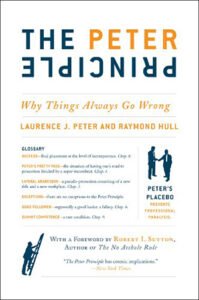|
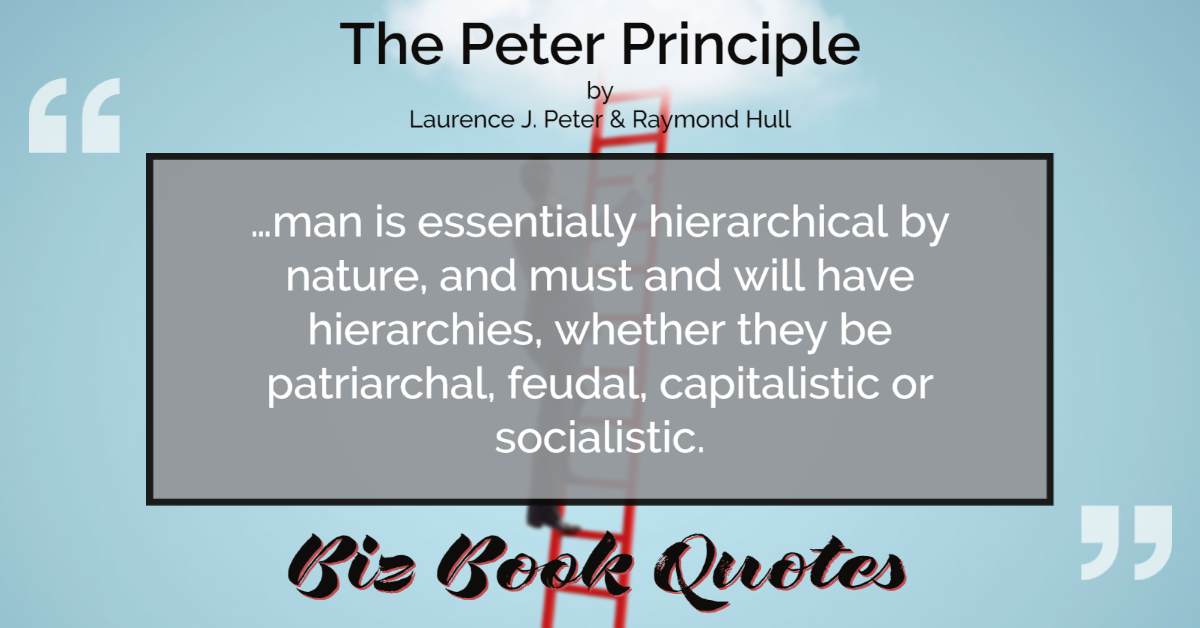
|
The Peter Principle:
…man is essentially hierarchical by nature, and must and will have hierarchies, whether they be patriarchal, feudal, capitalistic or socialistic.
|
69 |
|
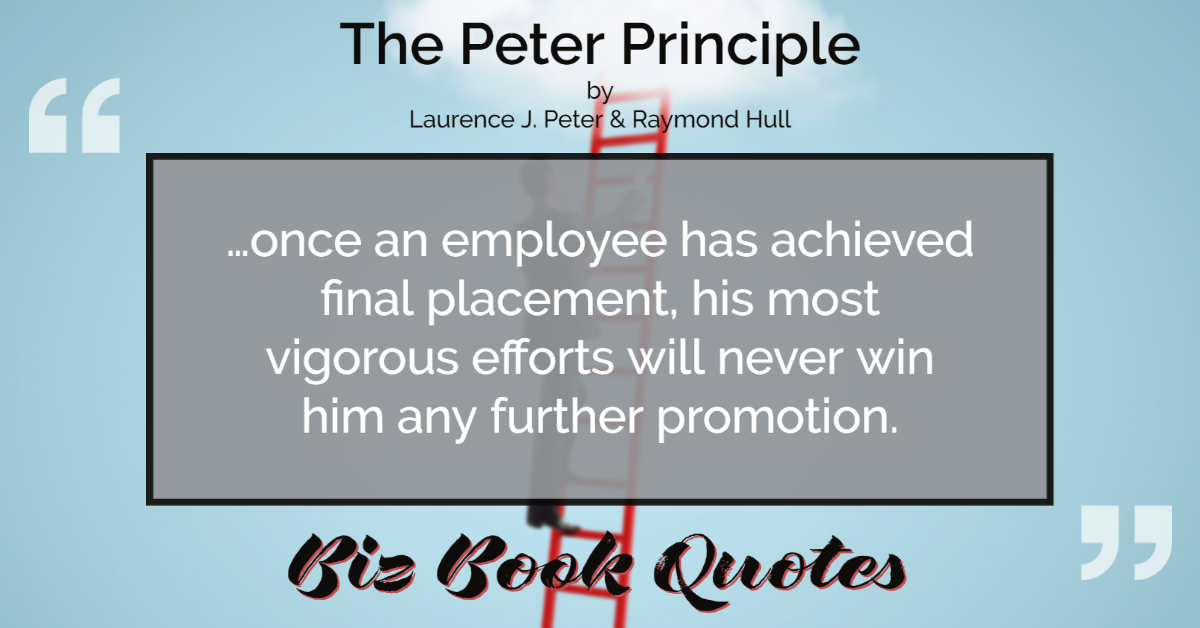
|
The Peter Principle:
…once an employee has achieved final placement, his most vigorous efforts will never win him any further promotion.
|
70 |
|
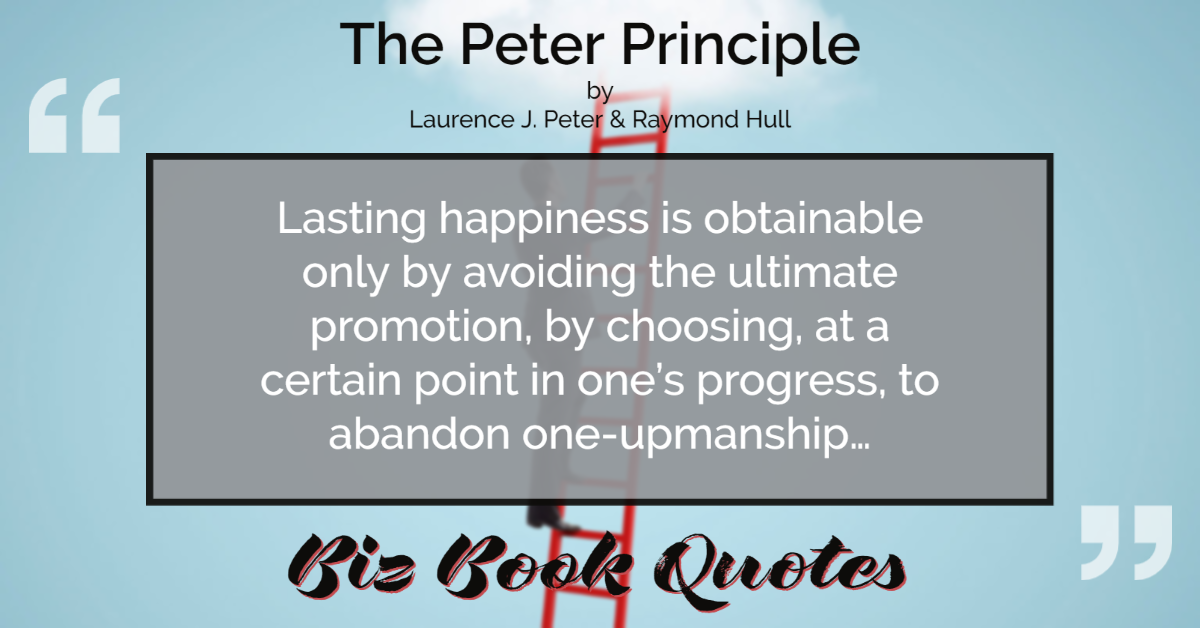
|
The Peter Principle:
Lasting happiness is obtainable only by avoiding the ultimate promotion, by choosing, at a certain point in one’s progress, to abandon one-upmanship…
|
73 |
|
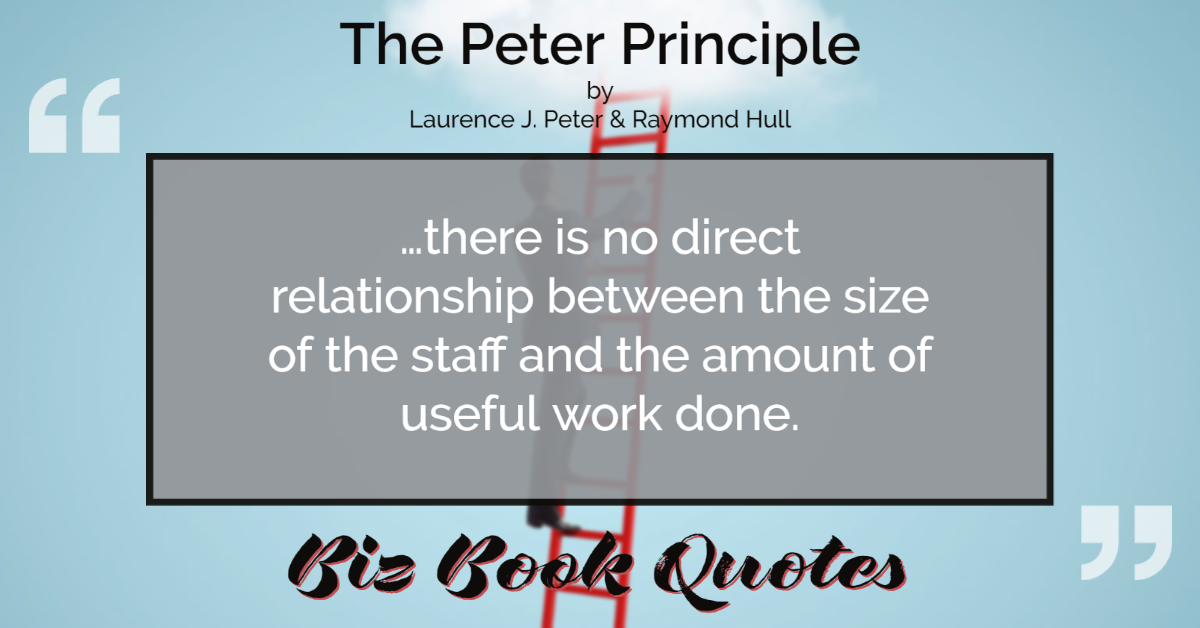
|
The Peter Principle:
…there is no direct relationship between the size of the staff and the amount of useful work done.
|
75 |
|
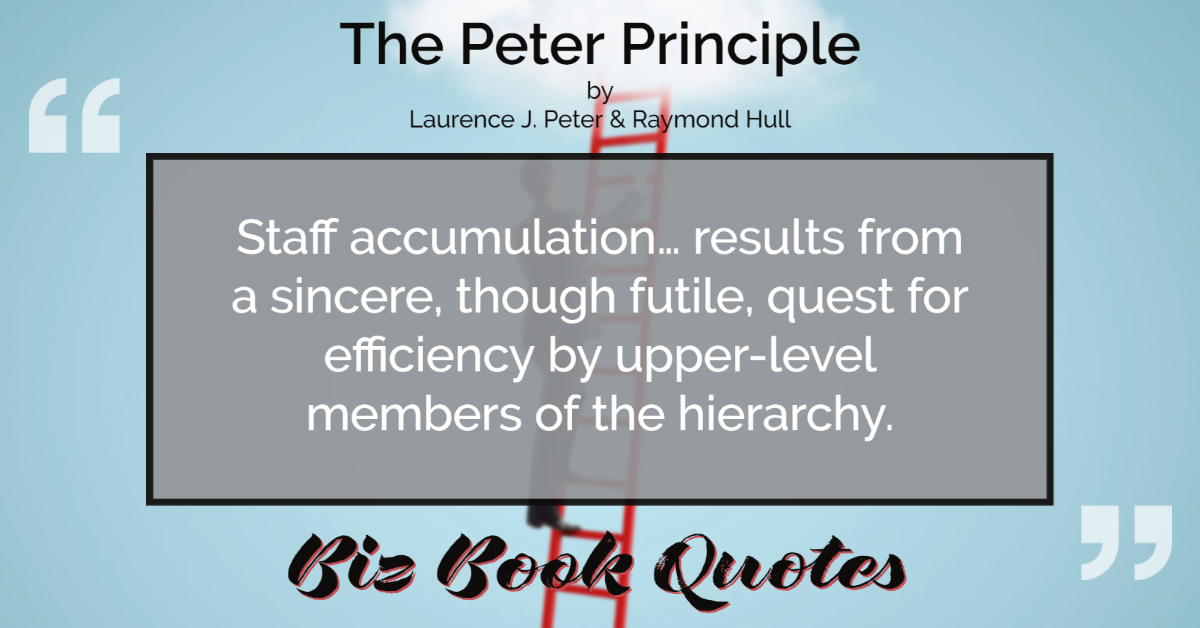
|
The Peter Principle:
Staff accumulation… results from a sincere, though futile, quest for efficiency by upper-level members of the hierarchy.
|
75 |
|
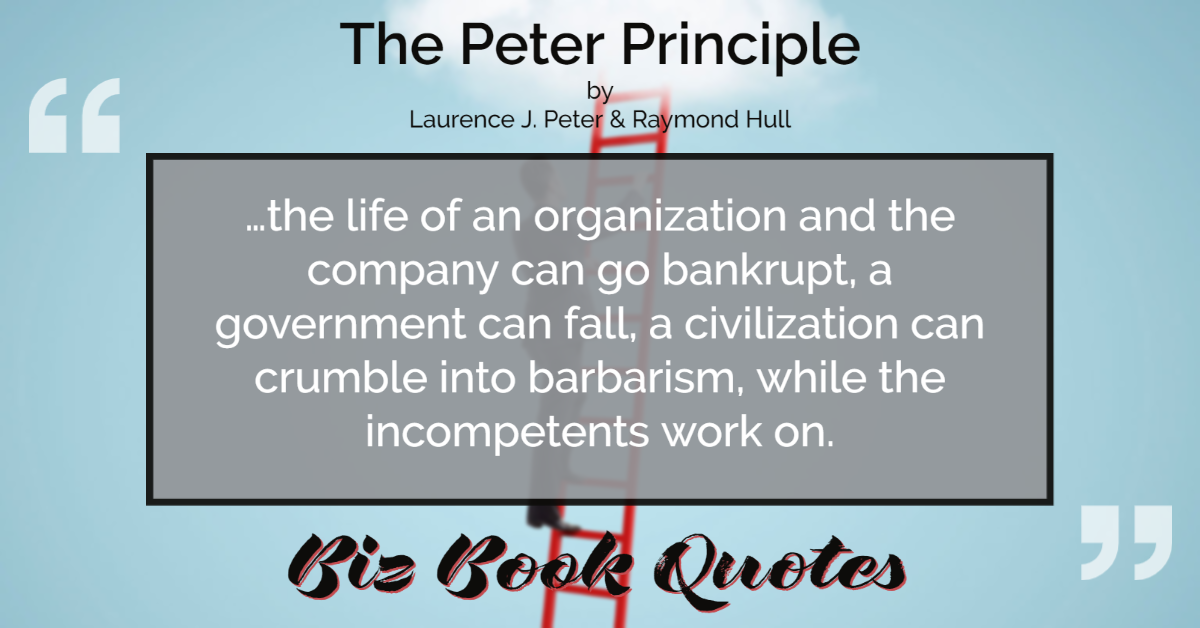
|
The Peter Principle:
…the life of an organization and the company can go bankrupt, a government can fall, a civilization can crumble into barbarism, while the incompetents work on.
|
77 |
|

|
The Peter Principle:
…in most cases of incompetence, there appears to be a definite wish to be productive. The employee would be competent if he could.
|
90 |
|

|
The Peter Principle:
Incompetence plus incompetence equals incompetence.
|
93 |
|

|
The Peter Principle:
The competent employee normally keeps on his desk just the books, papers and apparatus that he needs for his work.
|
103 |
|
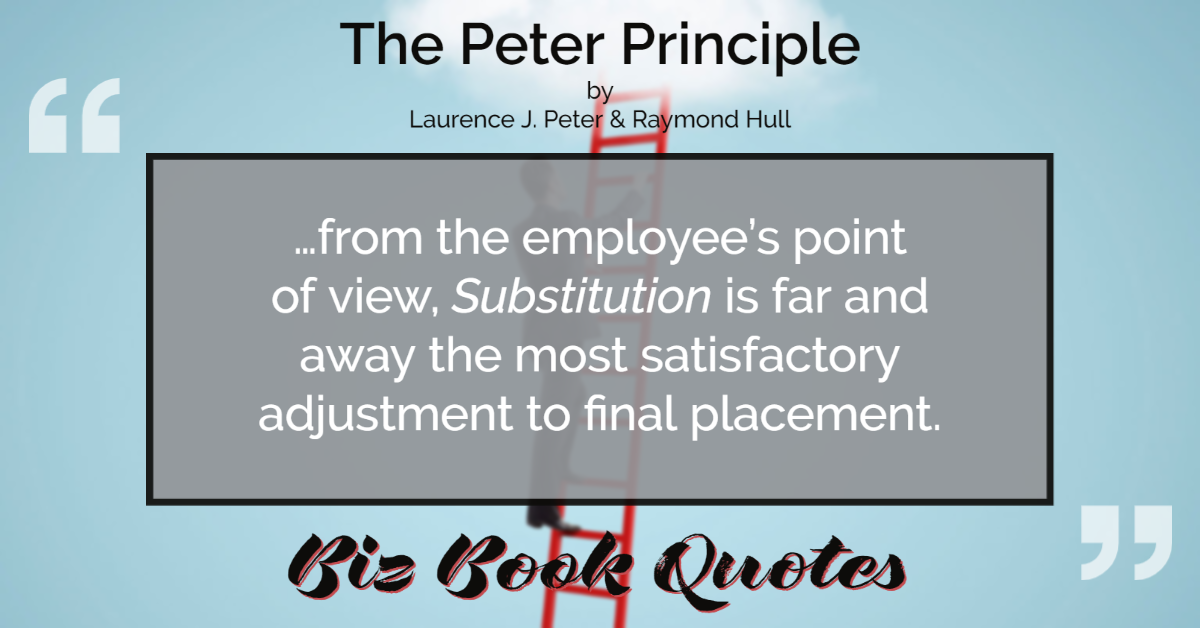
|
The Peter Principle:
…from the employee’s point of view, Substitution is far and away the most satisfactory adjustment to final placement.
|
124 |
